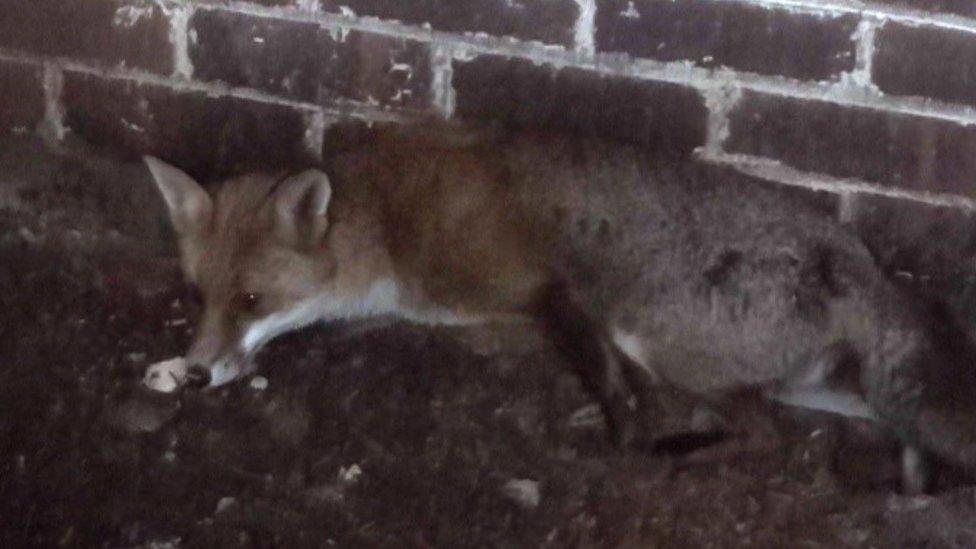Belvoir Hunt pays attack victims £48,500 compensation
- Published
The men who attacked Darryl Cunnington in March 2016 have never been identified
A hunt group has paid almost £50,000 to two charity workers who were attacked while monitoring their activities.
One of the victims had his neck broken during the attack, which was instigated by a man working for the Belvoir Hunt in Leicestershire.
Four other attackers have never been caught, despite anti-fox hunt campaigner Sir Ranulph Fiennes calling for justice.
The Belvoir Hunt has not admitted liability for the attack.
However, it has agreed to pay £37,500 in compensation to League Against Cruel Sports investigator Darryl Cunnington and £11,000 to his colleague Roger Swaine.
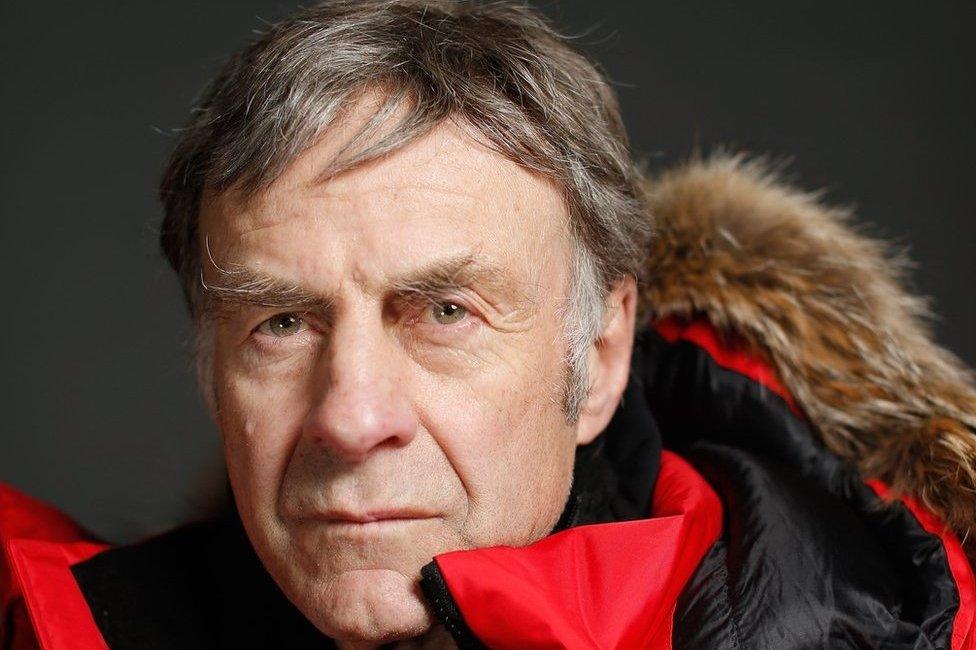
Explorer Sir Ranulph Fiennes has joined calls for the other attackers to be brought to justice
Joint hunt master Lady Sarah McCorquodale, who is Princess Diana's eldest sister, became embroiled in the case when she stood up in court to vouch for George Grant who was convicted along with his son over the attack.
Mr Cunnington said he was "relieved it has all been sorted out" but called on the Belvoir Hunt to help identify the other four men involved.
He suggested the two attackers already convicted must have known who they were.
"The four masked thugs that were called on must be known to George Grant and his son," he said.
"They have essentially escaped justice."
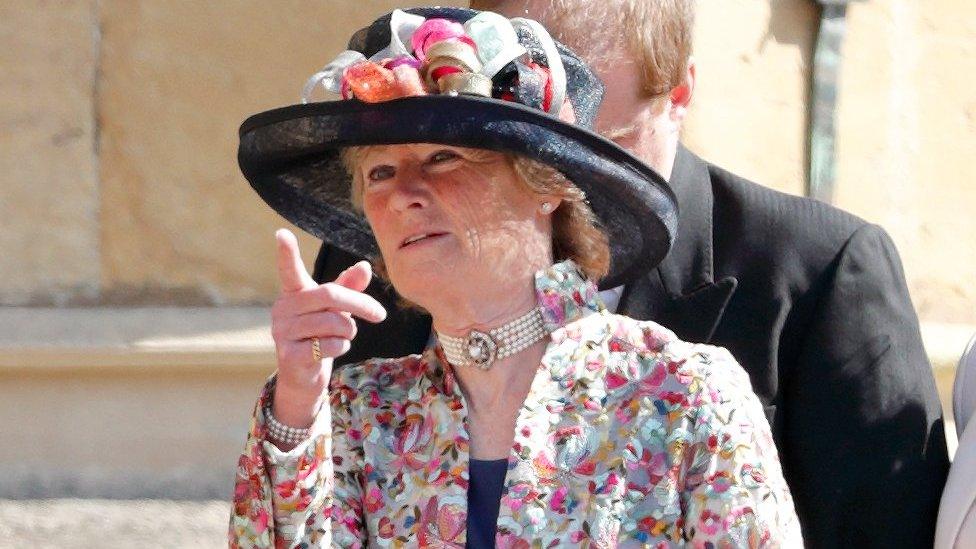
Lady Sarah McCorquodale said George Grant was "good at his job"
After compensation was agreed out of court, the hunt said in a statement: "The Belvoir Hunt condemns violence of any sort and took all reasonable steps to avoid such confrontation.
"It regrets that anyone was hurt and has agreed to settle this matter rather than waste more time and money."
The victims' solicitor, Helen Clifford, said: "High Court proceedings were issued against the Belvoir Hunt on the grounds that they were vicariously liable for the assaults and acts of harassment committed by the Grants [father and son George and Thomas Grant].
"My clients' compensation was paid by the hunt. While liability was denied throughout, the payment of compensation by the hunt speaks for itself."
Andy Knott, chief executive of the League Against Cruel Sports, backed calls for the other attackers to be brought to justice.
"That four other balaclava-wearing men also involved have been able to evade justice is extraordinary," he said.
What is the Belvoir Hunt?
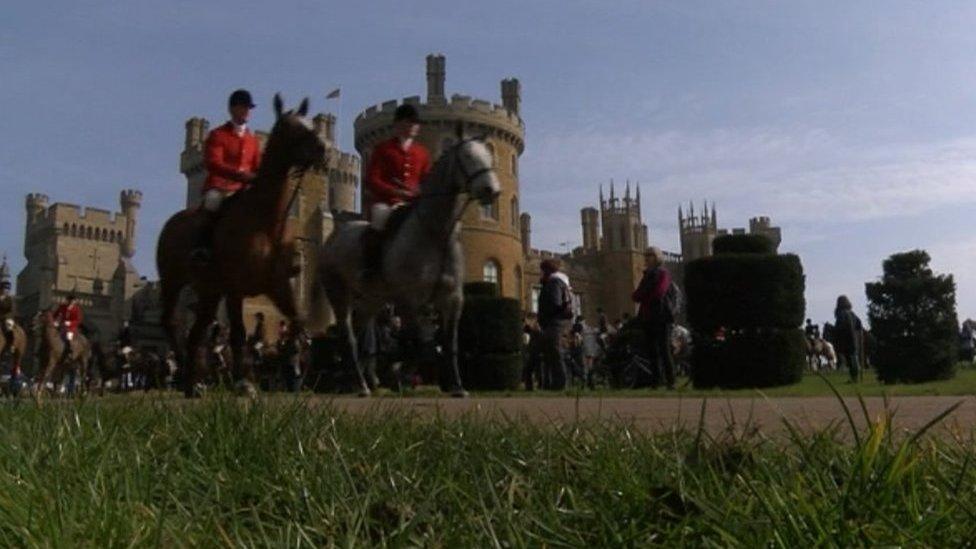
The Belvoir Hunt's hounds are kennelled at Belvoir Castle
The Belvoir Hunt is believed to date from 1750 and describes itself as "one of the world's most celebrated foxhunts".
Its hounds are owned by the Duke of Rutland and kennelled at Belvoir Castle, a stately home in Leicestershire.
Hunting foxes and other wild mammals with dogs was banned in the Hunting Act 2004, external, which came into force in February 2005.
The Belvoir Hunt said it now trail hunted instead, which involves following an animal-based scent trail.
Why were the men attacked?
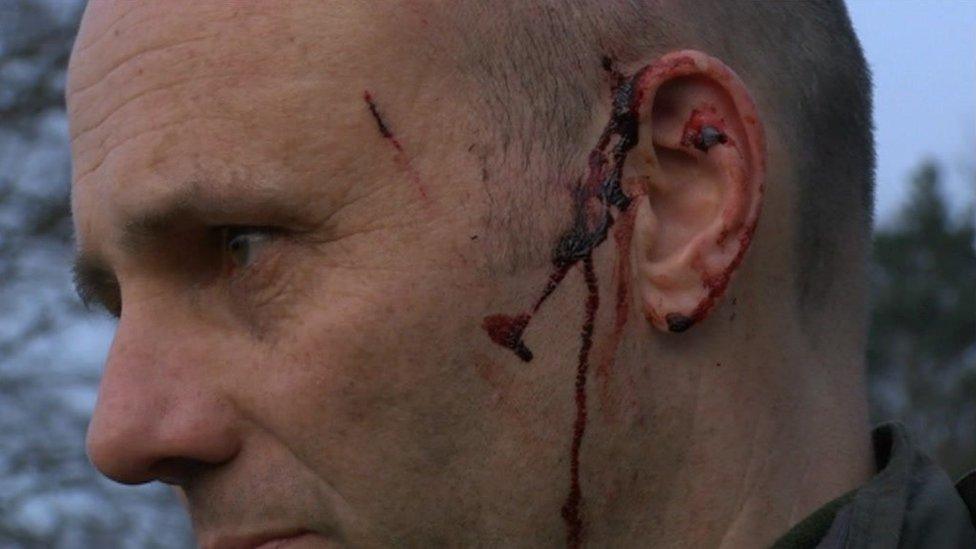
Hunt monitor Roger Swaine was attacked and his camera was stolen
Mr Cunnington and Mr Swaine were monitoring the Belvoir Hunt in Leicestershire on the last day of the hunting season, in March 2016.
Campaigners including Chris Packham have said they believe trail hunting is used as a cover, external for illegally hunting foxes with hounds.
In fact, when Mr Cunnington was a police officer he helped convict two members of the Fernie Hunt, also in Leicestershire, for doing just that, external.
Mr Cunnington suspected the Belvoir Hunt was doing the same, so he and Mr Swaine started covertly filming them.
They were discovered by George Grant and his son Thomas Grant, who approached them on a quad bike. George Grant then told his son: "Go and get the boys and come back."
Thomas Grant left on the quad bike and returned shortly after, accompanied by four masked men in a 4x4 vehicle.
The masked men attacked Mr Cunnington while the Grants attacked Mr Swaine and stole his camera.
How badly were the hunt monitors injured?
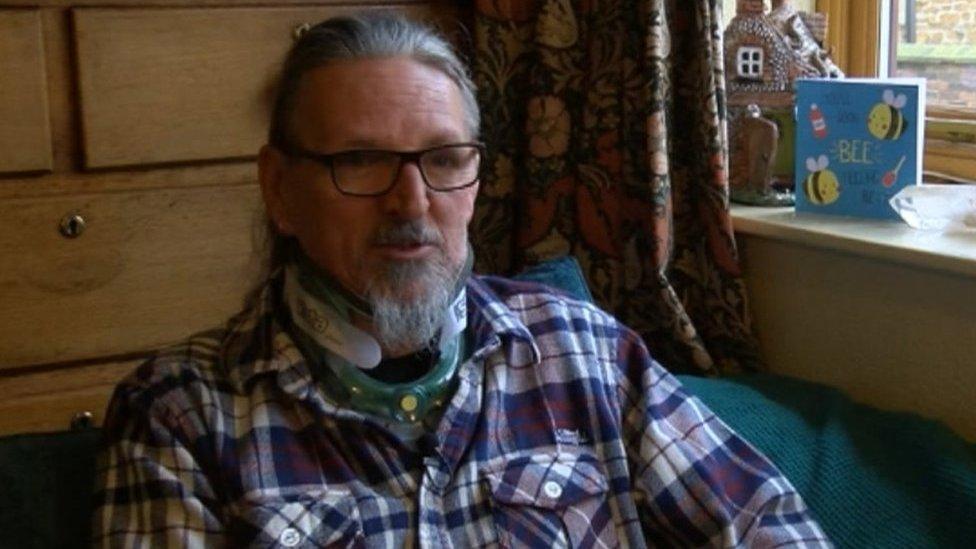
Darryl Cunnington was in a neck collar for four months after the attack
Mr Cunnington feared he had been paralysed because he was unable to move.
The masked men had pushed him down a bank and stamped on him.
He had a broken neck, broken vertebrae, and had to wear a neck collar for three months.
His neck is still stiff and painful three years later and the attack also exacerbated an old shoulder injury.
Mr Swaine was less badly hurt and managed to call emergency services. He had cuts and bruises, bleeding down the side of his head, concussion, and thought he was semi-conscious for a while.
His stolen camera was later handed in to police but the memory card had been damaged, meaning any potential evidence of illegal fox hunting could not be recovered.
Who has been brought to justice?
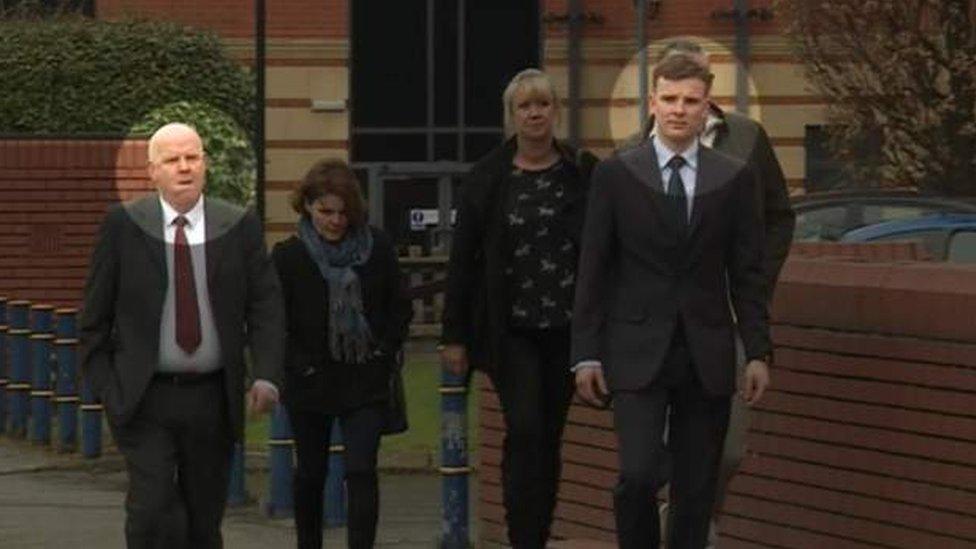
George Grant (left) and his son Thomas have been prosecuted but the other four attackers have never been identified
The Grants were prosecuted in a separate criminal case and pleaded guilty to causing grievous bodily harm against Mr Cunnington and actual bodily harm against Mr Swaine.
While George Grant did not physically attack Mr Cunnington himself, the court heard it was a "joint venture" between him and the other men.
The father and son also pleaded guilty to theft of a video camera and damaging an SD card in the attack.
Both men were given 13-month prison sentences, suspended for two years, after Lady Sarah McCorquodale gave a character reference in court arguing George Grant would lose his job and home if he were jailed.
They were also ordered to complete 200 hours of unpaid work and each pay Mr Cunnington £500 in compensation.

Follow BBC East Midlands on Facebook, external, on Twitter, external, or on Instagram, external. Send your story ideas to eastmidsnews@bbc.co.uk, external.
- Published17 July 2018
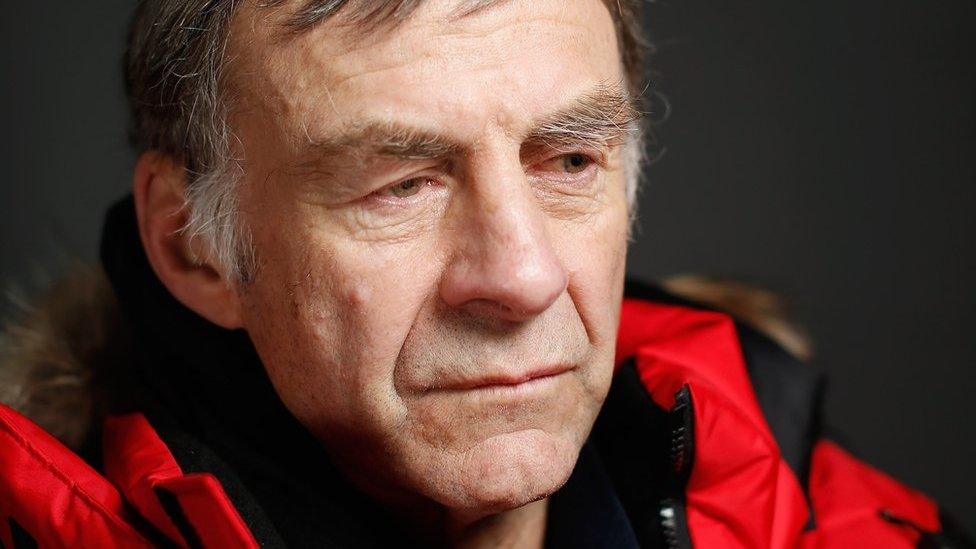
- Published2 July 2018
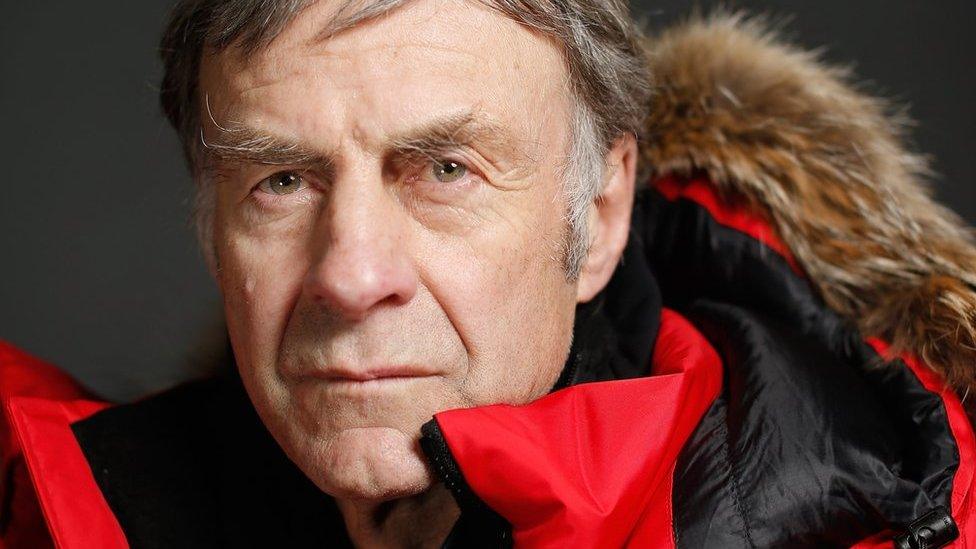
- Published2 July 2018
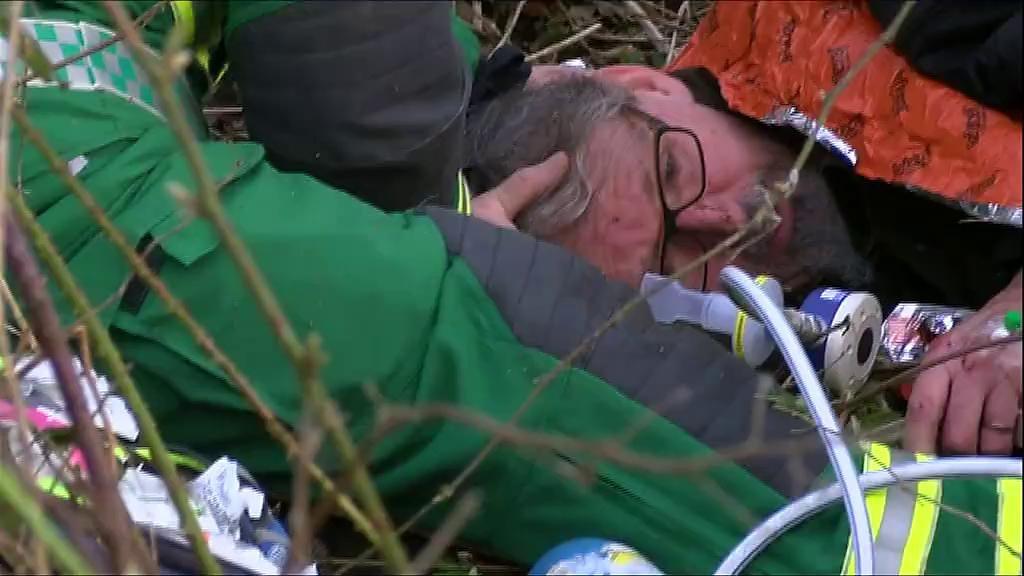
- Published14 June 2018
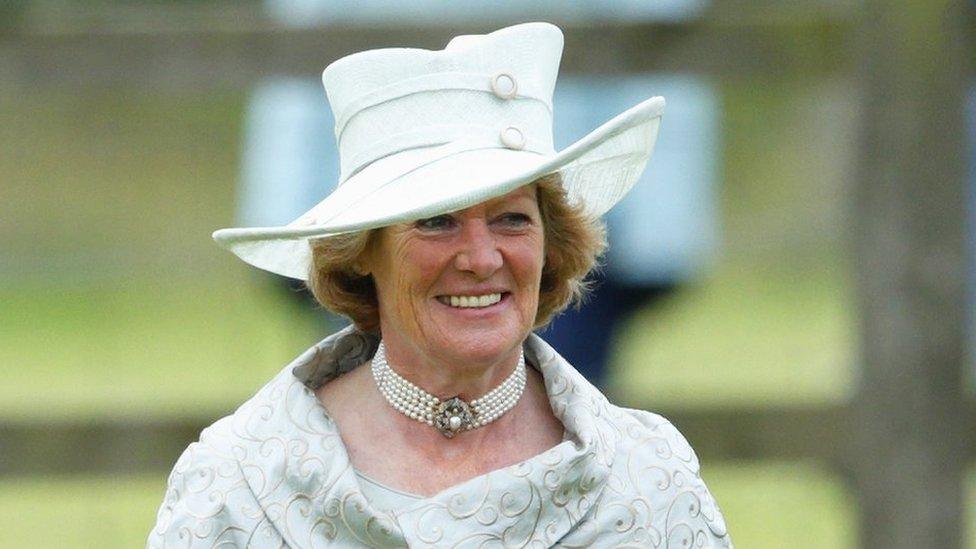
- Published10 April 2018
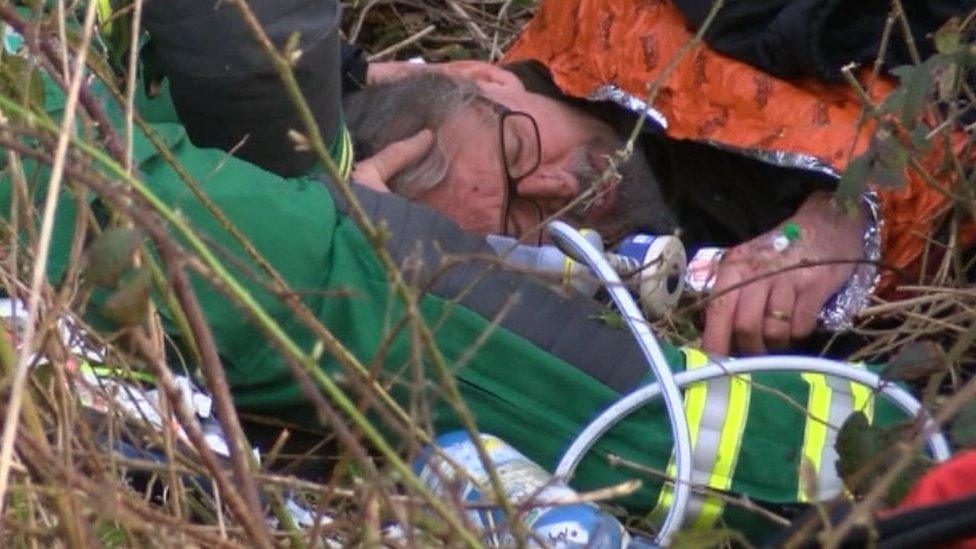
- Published29 March 2018
